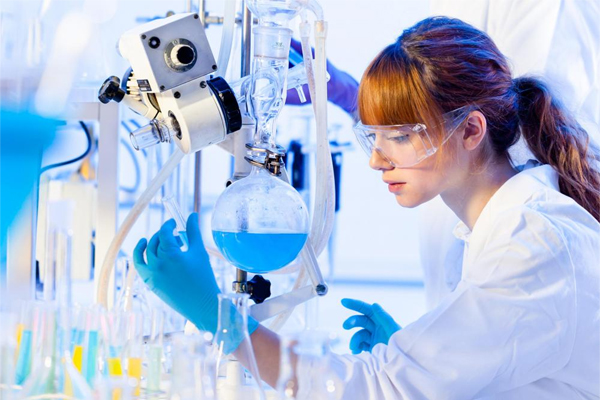



|
Tweet
Pin
It
|
The career of lab a worker depends on academic and technical skills. A certified medical laboratory technician may find a challenging career in a hospital, minor emergency centers, private laboratory, blood donor centers, doctor's office or clinics. A technician an become a technologist through further education and work experience.
Laboratory technologists can assist the doctors in taking samples, centrifuging, making slides, using specified stains etc, under proper guidance. As such, the demand for laboratory technologists will always increase since the number of hospitals, specialty hospitals, laboratories etc. are increasing. Job opportunities are also available in research laboratories and military service.
Technologists can advance to supervisory or management positions in labs and hospitals. They can also work as Laboratory manager/Consultant/supervisor, health care Administrator, Hospital Outreach coordination, laboratory information system Analyst/Consultant, educational consultant / coordinator/ director, health and safety officer etc. Additional opportunities are available in molecular diagnostics, molecular biotechnology companies and in vitro fertilization laboratories as well as in research labs. In the clinical areas, drug testing, therapeutic drug monitoring and biogenetics are just a few of the specialties with openings. In industry, medical technologists are needed for positions in product development, marketing, sales, quality assurance, environmental health and insurance, among others.
The Medical Laboratory Technologists/technician may be assigned to a specialized area of work in a large medical lab. In small labs, they may perform a variety of tests or all areas of lab work. Some of the duties of an MLT include collecting blood samples from patients and identifying abnormal blood cells, assuring safe transfusion of blood products, culturing micro-organisms to determine their identity and susceptibility to antibiotics, detecting a cancerous tumor with DNA technique, performing cultures and identifying bacteria and viruses, analyzing body fluids to determine chemical and biological components. Assuming administrative functions relative to reporting and recording results of tests conducted in the laboratory, maintaining accurate clinical records, selecting and evaluating laboratory equipment and new test methodologies and performing other duties as may be assigned by the laboratory supervisor. In large labs and hospitals, they may have to work in shifts on holidays and weekends or sometimes be on call for night duty.
Find it Useful ? Help Others by Sharing Online
Comments and Discussions |
Related
Career Options
|
|||
|
|